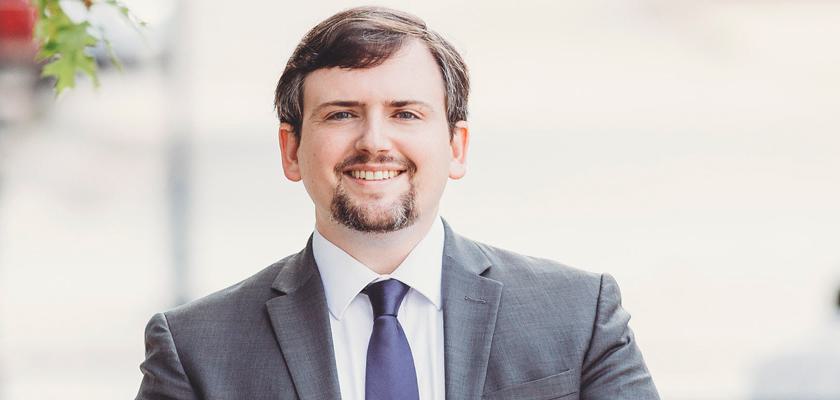This week, a report came out that Jefferson County caved to the demands of the Freedom From Religion Foundation (FFRF), which claimed that the practice of opening football games with prayer violated the First Amendment.
FFRF is a liberal, secularist organization based in Wisconsin that is one of the most rabid anti-God public-interest groups in the United States. Not even the ACLU is as aggressive at pushing God out of the public square as FFRF.
Over the last five years, I have dealt with FFRF on many occasions. Oftentimes, FFRF gets its way by sending demand letters that paint a very misleading picture of what the law requires. FFRF frequently cites precedents that are outdated or are not binding in the jurisdiction where the recipients of their letters live. Thus, if local governments consult with non-profit religious-liberty organizations when they receive these threats, then the lawyers can explain to them that most of the time, these threats are empty.
Unfortunately, most of the time, that doesn’t happen. Because FFRF often paints a picture that the local government will lose and have to pay hundreds of thousands of dollars in attorney fees by the end of the litigation, local governments believe standing up to FFRF is a lost and costly cause. Therefore, they often fold.
The FFRF bases its claims on the Establishment Clause of the First Amendment, which says, “Congress shall make no law respecting an establishment of religion.” Historically, the primary object of this Amendment was to prevent the establishment of a national church like England had. And as Justice Scalia repeatedly observed, the touchstone of traditional establishments was coercion through the threat of penalties. Thus, the Establishment Clause was designed to prevent the government from forcing Americans to worship God contrary to the dictates of their conscience or support a church with which they disagreed.
But there is a lot of daylight between that and acknowledging in a noncoercive way that God is real. Every president, from Washington through Biden, has done so. Congress opens every day with prayer, and every oral argument at the United States Supreme Court begins with, “God save the United States and this Honorable Court.”
So why can’t we do the same at football games?
Beginning in the 1940s, the Supreme Court began construing the Establishment Clause to mean not that the institutions of church and state should be separate, but that God and government should have nothing to do with each other. That is something that the Framers never intended. The FFRF often stretches these decisions further than what the Supreme Court said, but those decisions provide the FFRF with its firepower.
Fortunately, beginning in the mid-2000s, the Supreme Court began slowly correcting course. Instead of focusing on whether the government could possibly be viewed as endorsing a religion, the Court began focusing more on this nation’s history for guidance. Since then, there have been wins for public prayer and the displays of the Ten Commandments and crosses on public property.
Despite these wins, the courts remain most sensitive to religious displays in schools. In 2000, the Supreme Court struck down a Texas policy of schools opening football games with prayer, focusing on the sensitivity of children. So, for all of the FFRF’s usual shenanigans, there’s more merit to their Jefferson County demand letter than they usually have.
Nevertheless, there are still ways to fight back.
First, if the school board was willing to let the students choose a student who could give an opening message during the game, and if the students took the opportunity to pray, then the FFRF couldn’t touch them. If the government relinquished control over the message and the selection of the speaker, then the right to pray would be protected by the Free Speech Clause.
Second, the U.S. Supreme Court just agreed to hear a case involving high school football coach Joe Kennedy’s right to pray on the 50-yard line after football games. The Alabama Center for Law and Liberty filed a brief in that case arguing that prayer is constitutional as long as nobody is forced to pray along. We expect the coach to win. If he does, then that should set the stage for the next step, which is praying before football games the way Jefferson County did before FFRF threatened them.
My recommendation therefore would be for local school boards to consult with their attorneys and look into letting students speak before games. And hopefully, after the Coach Kennedy case, the stage will be set so that schools can open games explicitly with prayer again without having to worry about the FFRF at all.
We shouldn’t cave to bullies, especially when they tell us that it’s not okay to pray publicly. There are ways to fight back, and I hope Jefferson County will do so.
Matt Clark is the President of the Alabama Center for Law and Liberty, a conservative nonprofit law firm that fights for limited government, free markets, and strong families in the courts. The opinions expressed in this column are those of the author. The views and opinions expressed here are those of the author and do not necessarily reflect the policy or position of 1819 News. To comment, please send an email with your name and contact information to Commentary@1819News.com.










